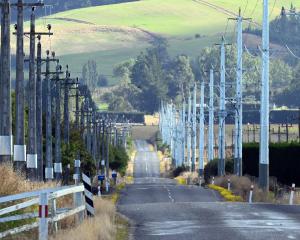Having children should be considered a precious gift to the nation rather than just a tax burden to be moaned about, writes Emily Keddell.
Conversations about the size of some families living in poverty have played out in the media recently.
Many critics are quick to say the problem is people have too many children when they can't support them.
Of course, prospective parents should consider their means when deciding on family size.
However, several points seem not to occur to those so eager to criticise the larger family.
Firstly, most, if not all children in this country are partly paid for by state subsidies of one kind or another.
If you receive Working for Families tax credits, for example, if your children attend school, if your child has been to the doctor, then you are, in effect, receiving government support towards the costs of raising your children.
Thus, to say those who require state assistance to raise their children shouldn't have children they ''can't afford'' is really to say that most people shouldn't have children.
Secondly, critics tend to ignore the fact of life chronology.
Decisions are funny things. Many are made with incomplete information and have unknown and unknowable consequences.
Perhaps, if we knew all possible permutations for the future we would never do anything.
Decisions to have children, by their very nature (as the children are here, now) are historic, and may have been made at a time when the financial situation or relationship status in a family appeared more secure than it is now.
No-one has a crystal ball, none of us know what the future holds, especially in these times of casual, precarious labour and less durable relationships.
A family may find themselves reliant on benefits when at the time they decided to have a third or fourth child they were in employment and a secure relationship.
Perhaps a child is born with a disability and a parent has to give up their wage to stay home and care for that child.
To say they shouldn't have had those children is like saying all those US homeowners shouldn't have bought those houses using mortgages that were unsustainable or those Christchurch settlers should never have built a city on sites where the earthquakes happened.
It's not as if you can just give children back when things go wrong.
Thirdly, ''choosing'' to have more children can overstate the level of actual choice in the potent mix of chance and decisions that results in children.
Anyone who is having sex cannot always control either when and with whom they have sex, or whether or not it results in a pregnancy.
As any adult knows (just think of yourself or your own circle of friends), a child can be conceived even when all contraception precautions have been taken, or you might just be unlucky after a single night of carelessness which many others escape from unscathed.
It's a lottery, and while it's all very well saying ''well don't gamble then'', it's ironic to punish one party for a ''loss'' while others escape with no such moral disapproval or other consequences.
In terms of the choice to have sex in the first place, not all women have total control over their sexual activity.
They may have unprotected sex in order to try to keep a relationship, to make a partner happy, or they may be the victim of rape.
Men may do so for the same reasons, for that matter.
I'm sure most people have at least one time they wish, post-coitus, they hadn't had sex with someone - and any sexual activity can result in a pregnancy.
Finally, someone has to have children.
It's taken as a given those having children when they don't have paid employment (or enough of it) are not actively contributing anything to society.
But they are making a huge contribution by having children our country will rely on in the years to come.
Our falling birthrate (at present about 2.05 births per woman) and increasing longevity means we will have a hugely expensive older population requiring plenty of workers to support their needs.
The number of people in New Zealand aged 65 years and over is projected to increase from around 550,000 in 2009 to 1 million in the late 2020s, when they will outnumber children.
While on a global scale a lessening birthrate is a good thing, at the national level there is still a case to be made for maintaining a replacement birth rate.
Having children should be considered a precious gift to the nation, rather than just a tax burden to be moaned about.
We might not all be happy about contributing our taxes right now to other people's children, but, nevertheless, as we get older, may find ourselves thankful those families with five or six children (immensely hard work to raise, whatever their level of receipt of state assistance) were all well fed and educated as they become the nurses, doctors, business owners, workers and parents of the generation that follows after us.
Dr Emily Keddell is a senior lecturer in the department of sociology, gender and social work at the University of Otago.











